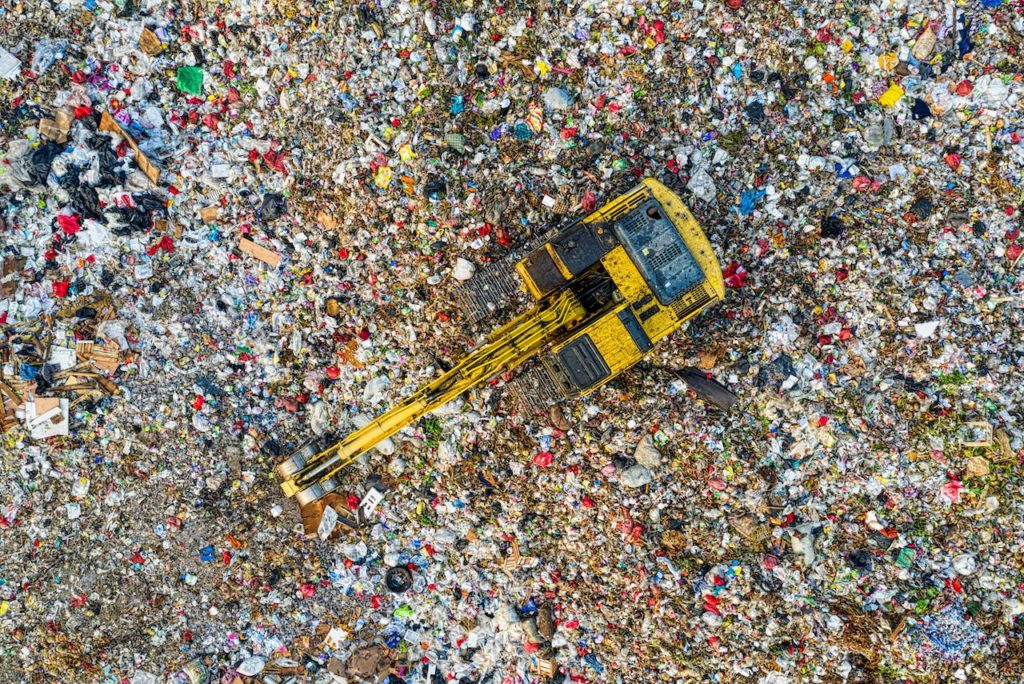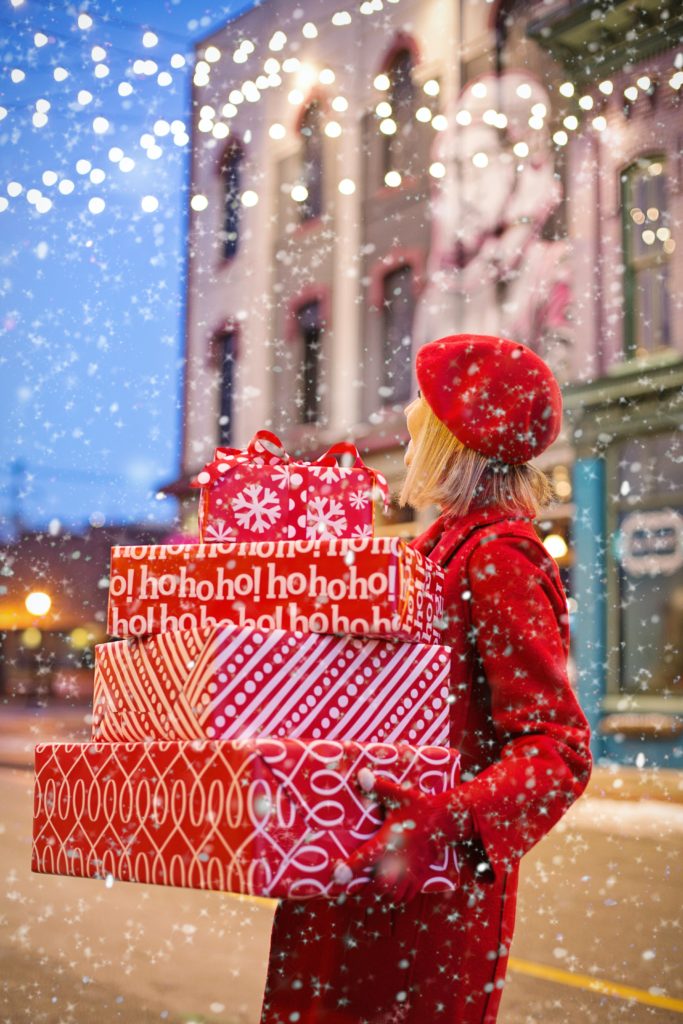By Priscilla Brotherton, Educating for the Environment Program Manager
A friend recently told me they built a shed in their backyard out of pallets and scrap materials from the RE Store. Impressed with their repurposing skills, I asked about their plans for the added space. Her response was confusing.
“I’m storing joy.”
“What?”
“Yeah, I got it for a screaming deal!”
After more questioning (and concern for her mental health) I was told the shed was built to store, among other things, Christmas decorations. In particular, three 6-foot letters that spelled out the “merriment” of the season, J-O-Y.
I felt like I was in a George Carlin monologue. (Yes, I am dating myself, but it still rings true.)
This is the season when our society doubles down on consumerism. Everywhere we go we are reminded that our purchases will make us feel better, make our families love us more, and endear our friends to us. We inherently know none of this is true but it is difficult to resist. Even Thanksgiving, a holiday that doesn’t require gifts, still urges us to purchase. If we just spend $35 more at the grocery store, we could get a free turkey!

All the products purchased will meet their end ― either through designed obsolescence, wear-and-tear or simply loss of interest from a fickle consumer. Each of us leaves piles of stuff in our wake (of course, some wakes are larger than others). Can you imagine if we didn’t have an “away” – somewhere to throw the stuff we no longer want? What would we purchase if we were forced to carry our garbage around with us?
In our current economy, we take materials from the Earth, make products from them, and eventually throw them away as waste ― the process is linear. What if this year we took a different approach ― if we bought with the end in mind and supported a circular economy? The overarching concepts of a circular economy include designing out waste and pollution and keeping products and materials in use longer through upcycling, repair and recycling, and rebuilding natural systems.

Given the way we’ve been socialized and inundated with advertisements for every convenience, one could be forgiven for thinking this is a foreign concept. But in truth, it’s the linear consumer economy that’s alien to our world. Look anywhere in nature and you’ll find cycles rather than straight lines. At the end of one life-cycle, matter that makes up one organism becomes food and/or shelter for other organisms, again and again.
There are also a number of businesses here in Northwest Washington working to support and expand a circular economy.
This year I will support our circular economy industries:
- A side table for my son’s sparse apartment from the RE Store.
- My sister will be receiving a throw rug (made of upcycled textiles) from Ragfinery.
- For my gardening pal – a bag of compost from Green Earth Technology. Not glamorous, but they will appreciate it!
- And maybe a scarf from Y’s Buys – a program of the YWCA and one of many wonderful local consignment stores ― where my purchase also helps local women in need.
I am grateful to have choices like this, right here in Whatcom County – as well as the myriad ways to offer not things, but experiences.
Yes, we want to keep our small, independent businesses thriving, but if we choose to participate in this extractive economy, it is done so with mindfulness. We weigh not only the price of the item, but the cost of storing, disposal, and recycling. We all could use a little joy ― but not the burden of building a shed to store it.
Take the next step
If you’re an educator looking for ways to to teach about consumerism, waste reduction and the circular economy, check out our upcoming professional development opportunity, Circular Economies, part of our Hope & Resilience series of ClimeTime workshops.
If you’re holding on to stuff you know longer need or want, consider if it can be donated for reuse at places like The RE Store and the other businesses listed above. If not, check out the Whatcom County’s WasteWise Portal, which offers guidance on where and how to dispose of hard-to-recycle items like batteries, electronic waste, paints, and more. Want even more tips for reducing waste around the holidays? Check out this blog.
